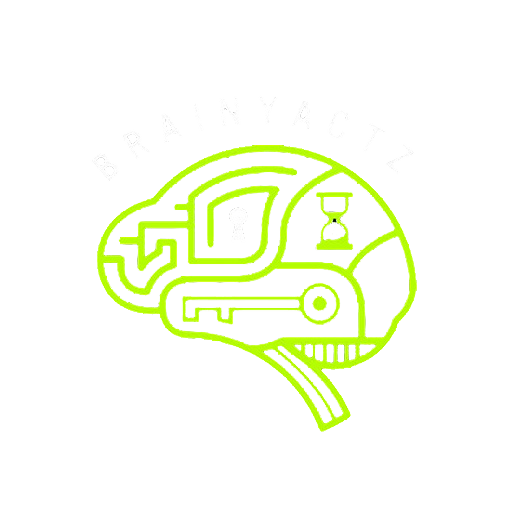Corporate escape room experiences have become innovative team-building tools, blending problem-solving, collaboration, and fun. These events can align with modern business practices, using tools like participant data tracking and feedback collection to improve future experiences. Companies can evaluate the gathered information to ensure each escape room aligns with specific goals and objectives. This article explores how to craft the perfect corporate escape room event, whether in-person, virtual, or hybrid.
Keep reading to discover expert tips and strategies for creating an unforgettable experience to boost team morale and productivity.
Key Takeaways
- Corporate escape rooms offer unique team-building experiences that align with company values and objectives
- Carefully designed puzzles foster communication, collaboration, and problem-solving skills among participants
- Event planners must balance difficulty levels and ensure accessibility for all employees
- Pre-event engagement and post-event debriefs maximize the impact of corporate escape room experiences
- Escape rooms can serve as ongoing training tools, reinforcing company values and identifying leadership potential
Understanding the Basics of Corporate Escape Room Events

Corporate escape room events have become a popular choice for companies seeking innovative team-building activities. These experiences combine market-driven entertainment with educational elements, making them an ideal addition to any event planning process. From enhancing communication skills to fostering problem-solving abilities, escape rooms offer more than just a fun diversion. They can serve as a unique alternative to traditional keynote speeches, providing hands-on learning opportunities at a competitive price point. To create a successful corporate escape room event, organizers must understand the key components that make these experiences both engaging and relevant to business objectives.
Defining What Makes an Escape Room Experience Corporate-Friendly
Corporate-friendly escape rooms are designed to align with company policies and best practices, focusing on teamwork, leadership development, and problem-solving. Leading companies value these tailored events for fostering collaboration and enhancing employee skills. A well-designed corporate escape room should reflect the company’s values and culture, offer challenges that mirror workplace scenarios, encourage effective communication and delegation, provide leadership opportunities, and incorporate industry-specific knowledge or skills.
Setting Goals for Your Corporate Escape Room Event
Setting clear objectives for a corporate escape room event ensures alignment with business goals and maximizes the experience’s value. Event planners should collaborate with department heads to identify specific targets, such as improving sales techniques or enhancing design skills tailored to the target audience. Creating a detailed spreadsheet to track progress and measure success can help justify the event’s return on investment when negotiating contracts with escape room providers.
Tailoring Puzzles to Match Corporate Themes and Objectives
Corporate escape room designers create puzzles that align with business objectives and marketing strategies. By understanding the company’s goals, they craft challenges that reflect corporate themes and reinforce key concepts. Audiovisual elements enhance the immersive experience, making the event memorable for participants. For example, an invention challenge may encourage creative thinking, a multi-person task can improve collaboration, and role-based puzzles help develop management skills, all tailored to support specific business objectives.
Planning Your Corporate Escape Room Event

Event planners orchestrating corporate escape room experiences face the crucial task of aligning the event with company objectives. This process demands creativity and strategic thinking to ensure the activity serves as an effective incentive for team building and skill development. Careful consideration must be given to selecting an appropriate theme, choosing between offsite and onsite locations, and fine-tuning game design to challenge participants while remaining accessible. By leveraging analytics and event planning services, organizers can craft an immersive experience that resonates with corporate culture and delivers measurable results.
Choosing a Theme That Aligns With Corporate Culture
Corporate retreat planners understand the importance of selecting a theme that resonates with the company’s values and goals. A well-chosen theme enhances usability and fosters innovation, potentially leading to increased revenue and improved finance strategies. By aligning the escape room experience with corporate culture, organizers create an immersive environment that encourages participants to engage fully and apply their newfound skills in the workplace.
Deciding Between an Offsite Venue or an Onsite Setup
Hosting a corporate escape room event offsite or onsite hinges on factors such as budget, available space, and desired outcomes. Offsite venues offer professional setups and dedicated staff but may incur additional expenses for transportation and venue rental. Onsite options leverage existing facilities, potentially reducing costs and improving internet connectivity for seamless lead-generation activities. The choice ultimately depends on the team’s specific skills and language proficiencies and the company’s goals for the event.
Balancing Challenge and Accessibility in Game Design
Game designers must strike a delicate balance between challenge and accessibility when creating corporate escape rooms. Experts utilize SharePoint to collaborate on puzzle designs that push participants’ knowledge boundaries while ensuring everyone can contribute. This approach minimizes the carbon footprint of multiple design iterations and increases the event’s visibility within the organization.
Tailoring Puzzles and Challenges for Team Building

Corporate escape rooms offer a unique team-building experience that blends entertainment with strategic thinking. By tailoring puzzles and challenges to reflect company culture and values, these events become powerful tools for fostering collaboration and enhancing communication skills. Event planners work closely with clients to design games that not only engage participants but also reinforce key marketing messages and corporate objectives. The careful balance of difficulty levels ensures that teams remain motivated throughout the experience, ultimately leading to improved employee relations and a deeper understanding of the organization’s goals.
Crafting Puzzles That Encourage Communication and Collaboration
Corporate escape room designers craft puzzles that foster communication and collaboration among team members. These challenges often incorporate security elements, mirroring real-world business scenarios and encouraging participants to share information effectively. Event management professionals work closely with puzzle creators to ensure each task aligns with the company’s email marketing strategies and overall business event planning goals. Some puzzles even integrate menu-based decision-making processes, simulating the complexities of corporate problem-solving in an engaging format.
Integrating Corporate Values and Messages Into Game Design
Business owners recognize the value of integrating corporate messages into escape room game design, enhancing employee engagement through immersive experiences. Event planners collaborate with puzzle creators to weave company values seamlessly into challenges, reinforcing key principles while fostering teamwork. Cvent’s event management platform helps organizers track the impact of these tailored games on overall event budgets, ensuring a balance between entertainment and educational value.
Balancing Difficulty to Ensure Engagement and Completion
Event planners recognize the importance of balancing difficulty when organizing corporate events with escape room experiences. Company event management teams collaborate with puzzle designers to create engaging challenges that neither overwhelm nor underwhelm participants. This thoughtful approach ensures a positive experience for all attendees, appreciated by sponsors. A well-designed corporate escape room typically includes a mix of difficulty levels: 30% easy puzzles to build confidence, 50% medium puzzles to challenge teams, and 20% hard puzzles to test problem-solving skills and persistence.
Leveraging Corporate Escape Rooms for Long-Term Benefits

Corporate escape rooms provide long-term benefits beyond team-building, reinforcing company values and enhancing team cohesion. These challenges are designed by expert event planners and aid in corporate training and employee development. Participants gain confidence and communication skills, improving job satisfaction and potentially leading to salary increases. Successful events can also enhance a company’s public image, showcasing innovative employee engagement. As organizations invest in their workforce, escape rooms offer a cost-effective solution with lasting results.
Reinforcing Company Values Through Themed Challenges
Event planners work with companies to create themed challenges that reinforce core values and align with marketing plans. These customized escape room experiences allow employees to internalize company principles through interactive problem-solving. By crafting scenarios that reflect the company’s ethos, planners ensure a lasting impact on team dynamics and corporate culture. For example, a challenge themed around innovation might involve a “Future Tech Lab Escape,” promoting creative thinking. At the same time, a sustainability-themed “Eco-Rescue Mission” can enhance environmental awareness, and a “Cosmic Crew Adventure” can strengthen teamwork skills.
Enhancing Team Cohesion and Identifying Leadership Skills
Corporate event planning professionals in the United Kingdom have embraced gamification techniques to enhance team cohesion and identify leadership skills through escape room experiences. These immersive challenges, often coupled with scavenger hunt elements, provide a unique platform for observing how employees navigate complex scenarios and work together under pressure. Event organizers utilize comprehensive checklists to ensure that each aspect of the escape room design aligns with the company’s goals for team development and leadership identification.
Using Escape Rooms as a Tool for Ongoing Corporate Training
Corporate trainers have embraced escape rooms as innovative tools for ongoing employee development, incorporating live-streaming technology to reach remote teams. This concept allows companies to reinforce key skills and assess risk management abilities in a controlled environment. Stakeholders appreciate the engaging nature of these experiences, which often include built-in contingency plans to ensure learning objectives are met regardless of puzzle-solving success.
Conclusion
Corporate escape room experiences offer a powerful tool for team building, skill development, and reinforcing company values. Event planners must carefully balance challenge and accessibility while tailoring puzzles to align with corporate objectives and culture. These immersive events foster communication, collaboration, and leadership skills, providing long-term benefits that extend beyond the initial experience. By leveraging pre-event engagement, facilitating team dynamics, and gathering feedback, organizations can craft unforgettable escape room experiences that drive employee engagement and contribute to overall business success.

